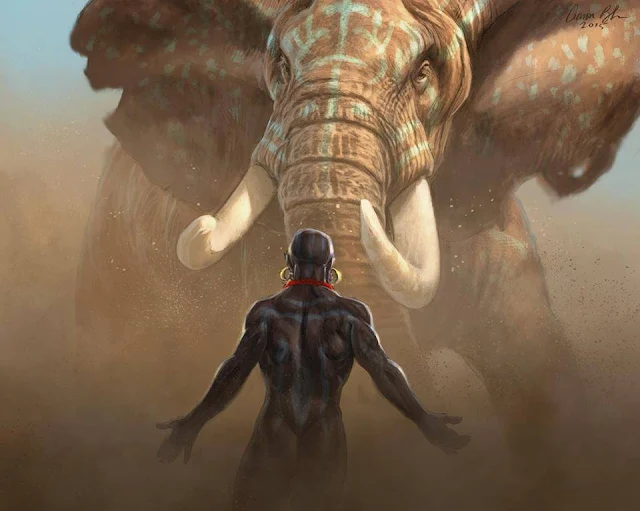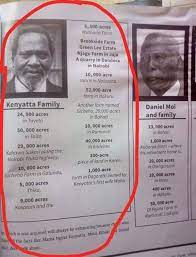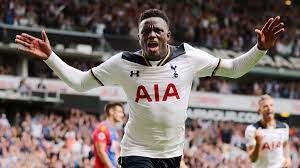“I have already informed the naitirians (your war leaders); the odds of this war are against you. While crossing River Khamukoya at mwifubukho, keep on the left side while approaching lukoba. Descend on the enemy downhill from the north. Let the sun splash rays on your backs, not your breasts. Do not accept to dine on the enemy’s cow, however fat it looks.” [Situma son of Wanaumbwa, Bukusu Prophet -1879]
In South of Malakisi, in Sirisia Sub-County of Bungoma…in the green lands right at the foot toes of Mount. Masaaba... there lies a very industrious village of Tulienge. Etulienge is no ordinary village, it is a monumental one. Meet an old man or woman in the village and they would give you the shocking account of a Great War. About138 years ago, the village was a bloody battle ground between the Babukusu and Bamia [Iteso].
Of all the battles you have heard involving Babukusu, only a few matches that of Wa-Chonge. It can only be likened to the killer dispersal wars of Silikwa, the Kikayi Massacre, and Battles of Lumboka and Chetambe. It was massive, horrendous and unique. The one that turned Situma Okhwa-Wachiye from a community seer to an actor and lastly becoming a brave soldier to defend his lands. Any Bukusu anthropologist will be quick to agree that the Wa-Chonge war was a combination of unpreparedness, stubbornness, military science and a rare crop of sorcery. Even the play tricks of Sing’uru Omuchuma, the great prophet from Bamuki clan, could do little to help the doomed Bukusu warriors.
Born in around 1850, Situma was born in the household of Wachiye Wanaumbwa a renowned Omukwangwa magician, seer and community leader of the Bukusu Community of the late 19th Century. At the age of 22, Situma went under the knife under Bachuma Chonge-Nabiri. He was raised in the will of the parents even though it as a period of instability with inter-tribal wars.
Like father like son, Situma grew to adopt the strange dreams and premonitions of his father, Wachiye. Although he did not assume community leadership, he worked closely with the leaders especially in the guidance with regard to wars and conflicts. For instance, he successfully plays a great role in defeating Barwa Bakoyonjo at the lukoba of Wa-Wangusi, an Omuchemwile. From that conquest, the Bukusu grew in vitality and power. The Next target was to eliminate Chonge, the emerging Iteso rebel.
Chonge was a well leader of the Bamia, residing in the confines of Bukusu. It is not clearly remembered the Bamia clan which Chonge belonged in. It was probable he was Omupala. As tradition, the enemy between Babukusu and Bamia was a sure fact. As time went by, Chonge owing his military prowess and many Barwa friends become a nuisance for Bukusu leadership.
Soon naitirians, the Bukusu war leaders, confined in the war prophets of the possibility to wage an offensive on Chonge so that the community would live, in peace, undisturbed. Sing'uru (Omumuki) and Situma Okhwa-Wachiye (Omukwangwa) were approached with a view of giving advice over the same. As usual they asked for time, going deep in the mountains for prayers, meditation and consulting the ancestors.
They would soon return and summon back the war leaders. Chances for a successful attack were very minimal and both seers unanimously advised the Bukusu military elites to postpone the siege. The naitirians at the time included Walusaaka (Omulunda), Musuya wa Wanjala (Omuala), Mamayi wa Wamambe (Omumuki), Wasilwa from Bakiyabi, Wanambisi and Makona from Ebubulo, among others. The advice of the war prophets did not sink well with them, having a premeditated decision to engage Chonge for war. Apparently, they had been blinded by the recent victory and thought it wise to stay on a path of conquest to prove their military might.
Situma, on seeing that the leaders could not be convinced, he ushered strict instructions that if considered would result in a win or less causalities. He went on:
“As you proceed with marching, crossing River Khamukoya at the cattle ford (mwifubukho), maintain the left wing of the lukoba (fort). Remember to approach from the Northern side so that the sun’s rays fall on your backs while blinding the enemy eyes. Strike from uphill downloads; it will give you a great advantage. One last thing, Shout “Elale” (Are you ready?), but do not eat of any animal meat the enemy may offer, however fat it looks.”
The same night the warriors in great numbers would prepare their weapons. They roasted meat and chicken as usual pre-war ritual. They smoked rolls of bhang, danced war songs calling to the day to come fast so that Chonge’s men fall by their blades.
However, during the very night, Situma the son of Wachiye had a disturbing dream. In the nightmare he could see wailing and crying. Red blood flowed through rivers Malakisi, Tisi, Menu, Ndakaru and Khamukoya. Abruptly, he woke up sweating, believing for sure, it was not a good sign.
Straight away, he went to the Bukusu military leaders. He tried explaining them what he had seen. He beseeched them not to engage the lukoba of Chonge, stressing the dream he had seen was a sure sign of bad omen. Sadly, his efforts bore no fruits. The plan had been made and there was no going back. Even worse, some of the planners belonged to Babanyange and Bamaina who were seniors as compared to Bachuma, his younger age set. They were inadvisable. They arrogantly dismissed the words of the prophet citing that if they had defeated the deadly Bamasai Baruku with lesser men, how about one Omumia. They even mocked Situma to dress luilikhe (woman’s skin cloak) if he wanted to be a woman since they (real men) were not afraid of war.
Standing his own ground, Situma insisted that he was not a coward but a messenger who had delivered a message from the gods. He stressed that with their strategy in place, the casualties will be many. However, as a Bukusu proverb goes, “Sikhayile mba’ malesi” [Whatever can’t be cured, can be endured]. He felt helpless as they began at dawn, marching towards River Khamukoya.
And yet, Situma would not give up easily. He, in secrecy, ran ahead of them and hid in nearby bushes. He then began growling like a hungry hyena in effort to wade off the warriors. Particularly, meeting a hyena on the battle day was a sign of bad omen and warriors would be required to go back and fight another day. His trick never worked, they cursed and laughed off the sounds of hyena, perhaps too intoxicated to be distracted to the sole mission – War!
Further on, Situma got even more shocked when they decided to abandon his strategy. After crossing the river, they headed straight to lukoba, the sun shining on their faces….and still going uphill. They had chosen the southerly direction as opposed to the northern direction as advised by the prophet. As a sacrificial move, rare for any seer before, Situma took forth the weapons and decided to join the war, knowing very well its gloom prospects on the side of Babukusu.
Their arrival took Chonge unawares (seemingly), sitting under the tree sharpening his weapons. No sooner had he heard “Elale” than he jumped to safety instructing them to wait till he prepares. This Elale factor is remembered as a ‘gentleman’s war strategy’ since the Bukusu believes to fight in a fair way, both ends prepared. Now about ten o’clock in the morning, Elale instructed his warriors to be ready. The time had come!
Somehow, Chonge’s intelligence had been underestimated by the Bukusu military ranks. Seemingly he had been adequately prepared for the battle. He had called reinforcements who were close by. They included; Barwa Bakisila, Bakamulyungu (Suk), Bakoyonjo, and Bamasai. He even had traded from some of the Bamasaaba mercenaries from the assimilated Bakolati Clans ready to engage Babukusu cousins.
As Babukusu stood waiting for signal, Chonge was busy feeding his men and not organizing them as he said. They ate to their fill. In the waiting, he prepared evil charms and put them in chicken of which he threw on its backside facing them. He also gave a goat and engeye of a black bull, stuffing them will the evil medicine. In gluttony, the warriors led by Namusole (Omuafu) and Makheti (Omukwangwa) got hold of the bull and roasted it…going against the words of the prophet.
Soon Chonge shouted “Emuli” (Iteso for come I am now ready).
All of a sudden, Ngubesi son of Mukwele Omumunaa hiding behind a post peeped through a gate opening. An Old woman is said to throw a raw egg with a green gourd- kumwendo kumubisi (seen as sorcery) to him followed by an Omurwa warrior who stabbed him. He died instantly. Things went into frenzy…the war had begun.
And very unexpected, heavy rains began falling alongside deafening thunderstorms. The hiding warriors and reinforcements emerged and completely surrounded Bukusu warriors. The Babukusu intelligence on this mission had been lame. They were outnumbered. The sons of Mubukusu put up a brave fight, while trying to break ranks and escape when chance arose. The war lasted for hours. The Babukusu had invited themselves to a war they knew little about.
Even after the rains, the sun arose as the war went on. The sun’s rays proved a great visibility disadvantage to Bukusu warriors. Besides, their enemies had the altitude advantage. Many got speared, bruised and arrowed. The enemy’s power proved mightier than thought. There were many casualties on the side of Bukusu.
The very prophet, who has warned them against the war, got speared and went down, dead.
The enemy threw many of fallen Bukusu warriors in River Khamukoya. The river was completely ridden in red blood…just as the prophet had seen in his premonition. To this day, a saying goes, “Nakhanywa nakhameela Senywa mu Khamukoya” [However I get drunk, I can’t drink water from mu Khamukoya.
The story of Situma is important in Bukusu folklore since it shows that prophets were no word peddlers. They were in the community for purpose of guidance. With rare gifts of communication to the psychic world, they could help the community prevent a disaster. Situma okhwa-Wachiye was unique since he chose, upon his community’s stubbornness, to physically take part in war- overriding the tradition of seers.
To be Continued: Bukusu dealing with Chonge was far from being over. Kikiyi wa Weswa a sharp emerging military leader from Babuulo clan would organize a siege in collaboration with Sing’uru, a seer to employs bitter-evil magic using mukhendo (gourd) to see the fall of the Chonge Dynasty.
A story is good, until another one is told….











I waited for this with glee..
ReplyTragedy at wa Chonge was as bloody as Nineveh or battle at Carchemish...am glad it found its way to google servers thanks to you!
Now, i know of another version which goes this way...
Barwa had lived among Bukusu for so long and had even starte to prosper,and this chagrined Bamaina who conspired to "close with them" as the Bamaina was almost ending.
They sought positive divination but all leading seers was against their motive except one Manyi.
So Bamaina ked by one Marombochi Omuliuli (kaba onurafu sana 😀😀) put Manyi to the test to prove his divination power. They fed a heifer (enimbo) on strong millet liquor (busa ya nabukimbi) until it was drunk(yaloma chilimo nga omundu). They then asked Manyi to say whatever happened to that inebriated cow or else (nakhabola ta khumuunaka kamafumo).
However Manyi's wife who overheard their plans forewarned him and when he walked in mid night, Bamaina with glistening spears demanded divination but only after Manyi could say what had befallen his cow and he easily told them what had happened.
Fast foward, Manyi advise them to attack barwa from the left (i still di not understand why, even israel god advised them to attack Jericho with some unorthodox means...)
Manyi went against the advice and ran right into the Barwa trap who were on the upper ground. The climax of this battle was when a well aimed spear got Manyi's beer gut(liatabula manyi litondo, kamala kamasasake kachichukha😕😬). It follows that our brave warriors suffered heavy defeat and two rivers; wamukoya and the other river has escaped my memory,ran red with blood leading to a saying, nakhamela senywa ke wa mukoya ta...
I waited for this with glee..
Tragedy at wa Chonge was as bloody as biblical fall of Nineveh or battle at Carchemish...am glad it found its way to google servers thanks to you!
Now, i know of another version which goes this way...
Barwa had lived among Bukusu for so long and had even starte to prosper,and this chagrined Bamaina who conspired to "close with them" as the Bamaina age set was almost ending.
They sought positive divination but all leading seers was against their motive except one Manyi.
So Bamaina ked by one Marombochi Omuliuli (kaba onurafu sana 😀😀) put Manyi to the test to prove his divination power. They fed a heifer (enimbo) on strong millet liquor (busa ya nabukimbi) until it was drunk(yaloma chilimo nga omundu). They then asked Manyi to say whatever happened to that inebriated cow or else (nakhabola ta khumuunaka kamafumo).
However Manyi's wife who overheard their plans forewarned him and when he walked in mid night, Bamaina with glistening spears demanded divination but only after Manyi could say what had befallen his cow and he easily told them what had happened.
Fast foward, Manyi advise them to attack barwa from the left (i still di not understand why, even israel god advised them to attack Jericho with some unorthodox means...)
Manyi went against the advice and ran right into the Barwa trap who were on the upper ground. The climax of this battle was when a well aimed spear got Manyi's beer gut(liatabula Marombichi litondo, kamala kamasasake kachichukha😕😬). It follows that our brave warriors suffered heavy defeat and two rivers; wamukoya and the other river has escaped my memory,ran red with blood leading to a saying, nakhamela senywa ke wa mukoya ta..